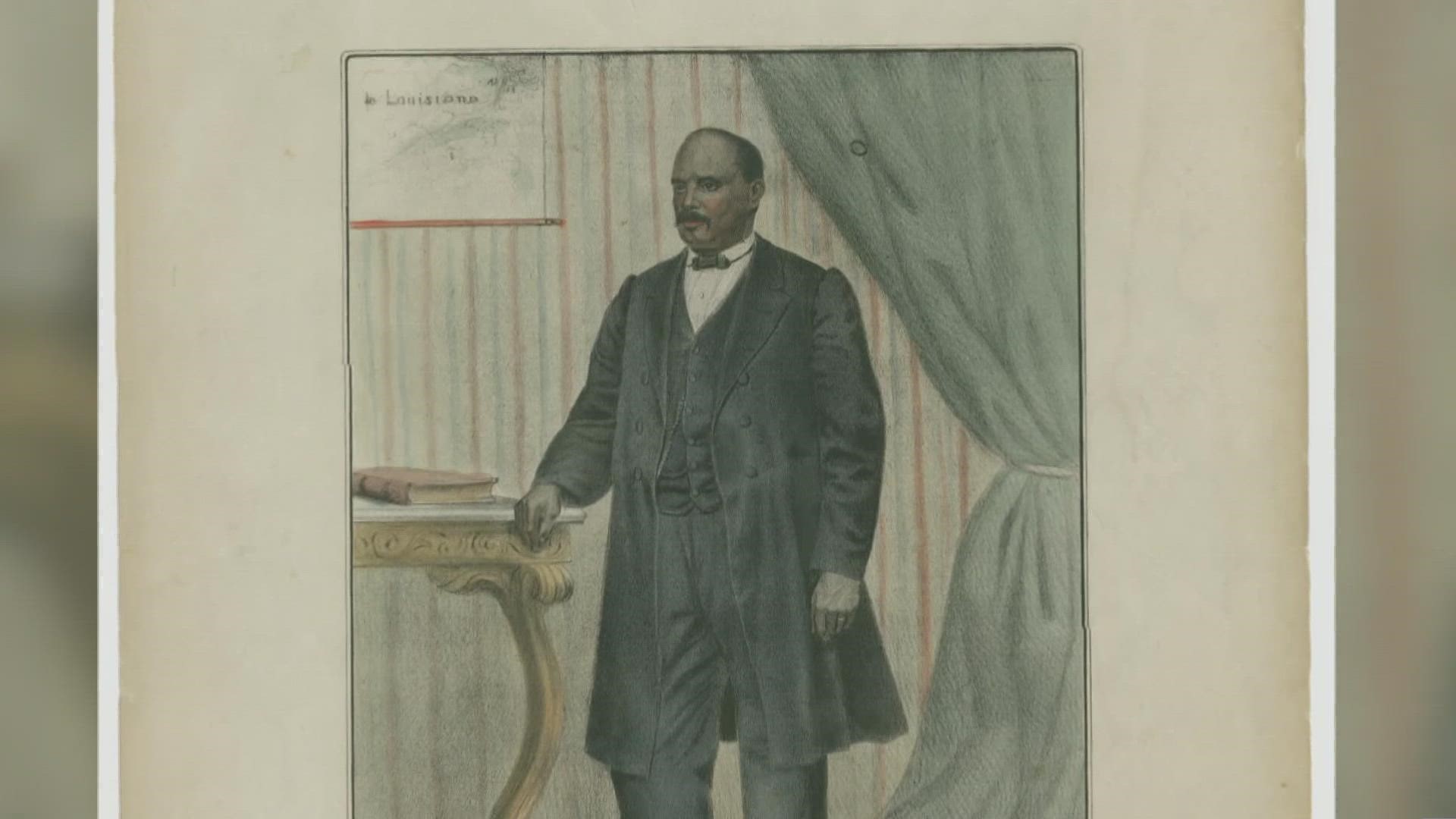NEW ORLEANS — You may have heard that Washington Artillery Park, which overlooks Jackson Square, will be renamed after Oscar Dunn.
But do you know who he is?
Louisiana elected Oscar Dunn as the nation's first black lieutenant governor in 1868.
Despite this monumental accomplishment, most people have never heard of him.
"Until recent history, Dunn has not just been an obscure person but a totally forgotten person," says Dr. Brian K. Mitchell.
Dr. Mitchell is a descendant of Dunn and wrote a graphic history of his life entitled "Monumental: Oscar Dunn and His Radical Fight in Reconstruction Louisiana."
The book explains how Dunn was born into slavery, but his stepfather buys his freedom.
Eventually, Dunn gets into the plastering industry.
"His path to politics is an interesting one. After the war, he doesn't want to be a plasterer. He comes up with an idea to make a living that will take him away from plastering, which he never really liked," says Mitchell.
Dunn wanted to help people who had been emancipated from slavery, so he negotiated work contracts for them.
Those free blacks started organizing, trying to gain the right to vote, and Dunn became one of the leading voices in this fight.
Then in 1866, the Mechanics' Institute Riot took place.
Former confederates massacre blacks who were organizing to discuss their rights.
Political leaders saw this as the potential starting point for another civil war, so they wanted to ease tensions.
"So what they begin to do is replace all of the government officials who had been supporters of the confederacy and replace them with people who they believe to be loyal to the union, and Dunn is among the first two men," explains Dr. Mitchell.
Oscar Dunn is also the first black person to serve as acting governor of Louisiana. He stepped in for Henry Clay Warmouth for a short time.
While in office, Dunn took up causes like civil rights and the integration of public schools.
Dunn mysteriously passed away in 1871, and tens of thousands of people attended his funeral. Some say it was the most well-attended funeral in Louisiana history.
"A huge question sort of popped into my head, you know, 'How does somebody who is this highly regarded get forgotten?' Well. What I found out is that it isn't that he was forgotten. It's that his memory is suppressed," explains Dr. Mitchell.
To really understand this story, we have to talk about the Reconstruction Era, the period after the Civil War from1865 to 1877, when there was an effort to extend equality to Black Americans.
Black people made a lot of progress because they were able to do things like vote and buy land. Then in 1877, Jim Crow laws were put in place to enforce racial segregation in the South, stripping away a lot of the progress blacks achieved. White historians washed over the many accomplishments by black people during this period, which partly explains why Dunn's phenomenal story is not well known.
Dr. Mitchell wants to make sure everyone knows Dunn's story and chose to do a graphic novel because he wants to reach young people.
"I believe this message was particularly important for youth who find themselves in communities that are depleted...in communities that don't have resources, and they see themselves in bleak positions. I believe Dunn shows us that with hope and with effort, we can endure anything, and we can transcend anything," says Dr. Mitchell.

